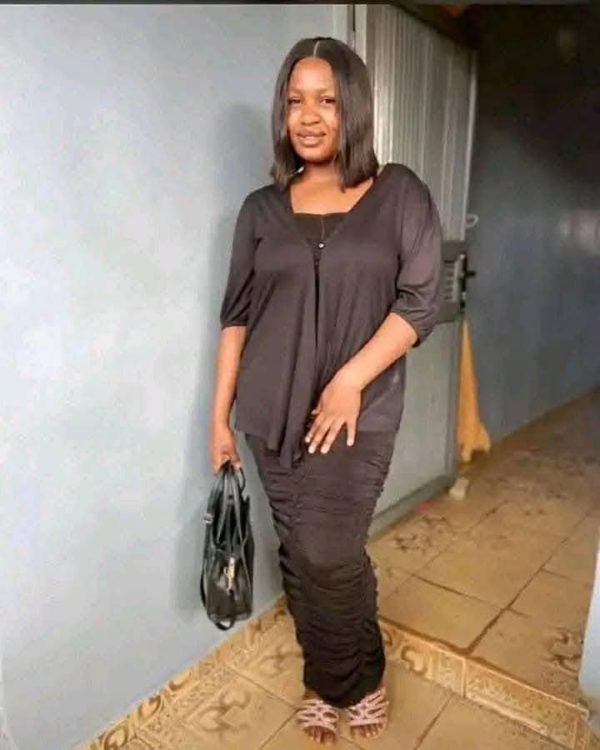Admin
We had tons of vigils, actor Adeniyi Johnson speaks on waiting 10 years to become father
Nollywood actor Adeniyi Johnson has shared the emotional journey of waiting a decade to welcome his first children, a set of twins, with his wife, Oluwaseyi Edun.
In a recent interview with fellow actor Kunle Afod, the 46-year-old revealed that his journey to fatherhood spanned two marriages. He explained that he waited three years for a child during his previous marriage before the relationship ended.
Adeniyi began dating Oluwaseyi in 2016 and the couple tied the knot in 2018. Together, they spent seven years praying and engaging in religious activities while holding onto hope for a child.
Their perseverance was rewarded in February 2023 when they welcomed their twins.
Reflecting on the experience, Adeniyi credited his faith and patience for helping him through the challenging period, adding that the long wait made the eventual blessing even more meaningful.
“The vigil was much. But we thank God that what one has been crying over God turned it into joy. It is a cry of 10 years. I waited for 10 years. Myself and the mother of the twins have been seeking God’s face for a child for seven years. And when it came, God said he wanted to gift me with twins. What do I do?” he said.
“Whenever I am at home, and I see them climbing on top of me, I am always very happy. I would say thank you, God. Other people buy diapers for one child for us we buy two. We bless God for provision. They also eat well.
“We did not allow age to tell on us. And we thank God we do not look like what we have passed through.”
[Vanguard]
Inquest opens into 2018 helicopter crash that killed Leicester City owner
An inquest into the 2018 helicopter crash that killed the owner of Leicester City Football Club opened on Monday.
Vichai Srivaddhanaprabha and four others were killed when the Thai billionaire’s personal helicopter crashed shortly after taking off from the Premier League club’s King Power Stadium following a match in October 2018.
Catherine Mason, the coroner presiding over the hearing, told the jury that under English law the role of an inquest is simply to determine the facts over how someone died rather than make rulings on individual guilt or innocence.
“An inquest hears evidence so the jury can make findings of fact and come to a conclusion about the deaths,” said Mason, sitting at Leicester City Hall. “Nobody is on trial here.
“An inquest does not decide matters of criminal or civil liability,” added Mason, who also said the hearing was expected to last for between two and three weeks.
In a tribute read to the court by the lawyer for the family of Srivaddhanaprabha, he was described as “a good man with a good heart”.
The family statement also paid tribute to his role in reviving Leicester’s fortunes and bankrolling their shock Premier League title triumph in 2016 after the Midlands club were 5,000/1 rank outsiders to be crowned champions of England at the start of that season.
“Khun Vichai had a vision to the put the club in the Premier League. He wanted to build the club up, not just run it.
“With his support and commitment the team won the Premier League in 2016 — in only their second year in the division.
“We miss him every day. The pain his death caused and continues to cause our family is immeasurable.”
In a separate development, the family announced last week they had launched a £2.15 billion ($2.63 billion) legal action against the manufacturers of the helicopter, in what is reported to be the largest fatal accident claim in English history.
AFP
[OPINION] That NELFund TV cartoon advert - Paul Nwosu
The National Education Loan Fund (NELFUND) television advert never fails to amuse me. Every time it appears on screen, I turn to my wife, also a marketing communicator, and ask: who exactly is NELFUND trying to reach with this type of TVC (as we say in advertising)?
The other day, however, I decided to watch the advert to the very end, only to discover that it was the National Orientation Agency (NOA) that produced the campaign for NELFUND.
Every advertising campaign is driven by its target audience dynamics, that is, the makeup of the market to which the product or service will be sold. This is why a thorough target audience analysis is usually conducted before embarking on such campaigns. The audience demographics—age, sex, income, population, location, etc.—are carefully considered. Their psychographics, such as lifestyle, attitudes, beliefs, and values, are also tracked to ensure alignment with the essence of the product or service being marketed.
These factors would then determine the copy (language), models, locations, and other elements used to capture the attention of the intended audience.
In the light of this background, one begins to wonder whether the NOA took the time to study NELFUND’s target audience before producing the television cartoon currently running on major national television networks.
The last I checked, NELFUND is a national loan scheme introduced by President Bola Tinubu to make higher education accessible to indigent students who ordinarily may not be able to afford it. This means the scheme targets potential and current higher education students aged 16–18 years and above – young adults on the verge of entering tertiary institutions or already enrolled.
Communicating such an important credit facility through a “Tom and Jerry”-style animated cartoon advert is inappropriate.
NELFUND is a serious financial product that requires clear and unambiguous communication. Animated cartoons are typically designed to entertain children or aid their cognitive development. While some adults may occasionally watch them for amusement, this alone is insufficient justification to use such a medium to communicate a life-changing facility to young adults.
Financial institutions that use animated cartoons, caricatures, or emojis in their campaigns typically do so as part of secondary or subordinate campaigns, reinforcing a major primary message.
The NOA would do well to use relatable models who resemble young students to create a public awareness campaign that resonates with the target audience.
The campaign should also extend to remote areas of the country, where poor but brilliant students abound.
President Tinubu’s intention is to ensure that no youth’s academic potential should be truncated due to financial incapacity. This vision underpins the introduction of NELFUND, and the NOA has a critical role in realizing this objective.
Nwosu PhD writes from Awka.
[OPINION] 2025 budget: Recipe for a $1trn economy in 2030? - Eyitayo Ande
‘Whatever will be, will be’, translated in Latin as “Que Sera, Sera”, was the response I got from a friend when I asked him over lunch if he possibly thinks that with the current economic growth rate, Nigeria can attain the status of a trillion dollar economy by 2030. A colloquial I know sounds very familiar and has assumed a very popular form of sloganeering, depicting that the future is in the air and fate determines the outcome of a course of events. While this phrase may often come in handy and be correct in some instances and could be a helpful attitude to ease anxiety, the same cannot be adopted for a nation’s economy as no economy is guaranteed to grow unless certain factors are dispassionately implemented.
Certain factors determine the kind of economy countries have. One of such factors is the expenditures profile of the government. Nothing is left to chance in the economic transformative processes of a nation. Data and stats play critical roles and financial and economic experts go in the direction they take them, just in the same way DNA evidence does in forensic crime investigations – I understand crime investigators would typically go anywhere DNA evidence leads them even if other evidence may be pointing in a different direction.
Achieving profound economic growth requires conscientious and intentional planning. Talking about planning and the economic projections for the next five years, one would wonder, going by the stats analysed in the 2025 Appropriation Bill dubbed “The Restoration Budget: Securing Peace, Rebuilding Prosperity” and presented to the NASS by President Tinubu last month, if the kind of total expenditure earmarked in this bill would guarantee the GDP threshold of $1 trillion promised by this administration by 2030. Are we truly on track to achieve this phenomenal feat in five years?
With an average growth rate of 3.2 percent in 2024, the economic growth is indisputably very slow and the government needs to expand the economy by increasing spending exponentially. There is a direct correlation between the annual total spending of a government and economic growth. Many had hoped that there would be a dramatic shift to substantially increase the government’s 2025 total expenditure to spur productivity and aggregate demand, create job opportunities, make massive investments in infrastructure in key sectors and improve the quality of life of Nigerians.
The size of the 2025 budget relative to the size of our population has come under attack. It highlights the disappointment of many wishing that the total spending would be considerably higher but definitely not to fund corruption. A surfeit of experts have described it as too meagre to service a population as large as ours – estimated by IMF to be 233 million. Nonetheless, the hallmark of the 2025 Appropriation Bill is the conspicuous absence of any funds allocated to fuel subsidy. This has loomed large over the economy of this nation. The response to its non-inclusion has been meteoric and sensational – rightly so. The removal of the fuel subsidy is a long time coming and it will assuredly have enduring economic effects well into the future for the country.
However, it is as if the makeup of the 2025 national budget proposal has taken a surprising new twist with debt servicing replacing the fuel subsidy. It can be safely assumed that the $6-10 billion characteristically allocated to this expense line over the years has been repackaged as debt servicing – 15.8 trillion naira ($10 billion). While the 2025 Appropriation Bill of 49.7 trillion naira is 42 percent higher than the 2024 Appropriation Act of 35 trillion naira, it is way smaller in absolute terms due to the massive devaluation of the naira.
Unfortunately, Nigeria would continue to reel from naira devaluation because of her debt burden notably from our foreign exposures. A deficit financing of 13 trillion naira occasioned by the ridiculously low revenue profile of the nation is extremely worrisome. Implications are that the debt servicing for 2026 will likely increase. The reversal would however continue to be elusive if the nation’s revenue profile isn’t stepped up to appreciably stem deficit spending and stop the reliance on loans.
To fix this, rebuild fiscal space and create macroeconomic stability, there may be an urgent need to restructure the country’s debt portfolio. There are reports that Nigeria is being ripped off with high fees as the interest rates by international creditors on loans availed to the country are one of the highest globally. An urgent need to renegotiate the terms of most of our exposures is extremely desirable. Furthermore, there should be a lot of debates and discussions around how to boost the state of our government and eke out an economic win that would serve the overall interests of the people.
Equally, it is imperative to reset budgetary conversations and develop decent revenue sources pretty fast especially from non-natural sources like taxes and levies. Imagine if the nation’s tax-to-GDP ratio moves northwards from around 10 percent to 25 percent with effective tax administration and laws, a sum of $50 billion (80 trillion naira) would accrue to the federation account just from taxes alone, with the current size of our economy.
The red tape must be cut to engender economic prosperity and development and curb waste and fraud. This is essential to achieve any meaningful success with the implementation of this and subsequent national budgets. Even though it is shy of expectations, it is expected that this Appropriation Bill would benefit all Nigerians regardless of ethnic or political inclination and serve as a gateway to connect with the people for the attainment of wide-ranging social needs and address the public safety crisis in many parts of the country.
It is an unsettling time for most Nigerians as far as the economy is concerned as little could prepare many folks for the affordability crisis they have been subjected to over the course of a dozen and half months. Many folks, impoverished, helpless and living from paycheck to paycheck, have a grim task of processing what has befallen them financially but know surviving in present-day Nigeria would take a little more elbow grease.
The government and economic handlers must therefore develop a personal relationship or feeling for the people much more than the political relationship which seems to currently exit. That is the way to have compassion and feel the heartbeats of the struggling and vulnerable Nigerians. The heartbeats of several folks pang of hunger, deprivation, poverty, inability to pay school fees and house rents, etc. Nigerians seeking full accountability for every penny appropriated should therefore not be viewed as asking for too much.
It is almost certain that attaining $1 trillion by 2030 is impracticable with our economy put by IMF at $194.96 billion in 2024 due to the monumental naira devaluation, because to achieve that, Nigeria would have to grow at 38 percent annually for the next five years from the 3.2 percent growth rate accomplished in 2024. Well, it is left to be seen what to expect based on the size of the nation’s economy with the planned rebasing exercise. Nevertheless, she can improve her economic status if she can truly diversify her economy from oil and gas to non-oil sectors like SMEs, real sector to grow productivity, agriculture, etc.
The country’s domestic production capacity is next to nothing as we sparsely produce anything of substantial value for the global markets. We cannot continue to rely on imported goods and expect to achieve a $1 trillion economy by 2030. It is time for the country to be a “creator and not just a consumer” by producing valuable goods that will satisfy not just the domestic market but serve the international markets as well.
Additionally, there is an urgent need to incentivise and attract massive capital to the country, the likes of which were seen at the onset of the Fourth Republic where Nigeria was the preferred destination of FDIs in Africa and I believe this administration can leverage on the transactional style of leadership of Donald Trump to foster deals that will usher in substantial capital inflows into the country.
However, the insecurity ravaging many parts of the country needs to be curtailed to boost investors’ confidence, which is needed to attract capital and stimulate the economy. Over the years, insecurity has been an economic malaise that has diminished investments, especially from foreign investors, causing a spike in the rate of unemployment and resulting in several social issues that the government is still grappling with. The government must provide a safe and secure environment to prompt capital development and provision of social investments necessary to serve as a catalyst for economic growth.
In conclusion, while I admire the optimism on display by President Tinubu in his media chat on December 23, 2024, I sincerely hope the performance of this budget will be topmost on his agenda using the power of his presidential pen to get things done and ensure transparency and accountability. Amid the biting but desirable economic policies, a bundle of economic plans likely planned for 2025 by this administration and the recent uptick in the foreign reserves, the country risks losing all the benefits designed to accrue if the efficiency of government at national and sub-national levels does not feature prominently on the front burner.
President Tinubu must be prepared to move mountains to decimate the hydra-headed monsters – corruption, waste, frauds, inefficiencies, and the reported shoddy implementation of past national budgets denting our national pride and honour.
Ande, a financial and political economy analyst, writes from Lagos and can be reached via eyitayoande@gmail.com
[OPINION] Aliko Dangote and the cleric - Etim Etim
There was a mild drama at Our Saviour’s Church, Tafawa Balewa Square, Lagos on Wednesday, January 8, when the presiding cleric veered off from his sermon to address business magnate, Aliko Dangote, who was seated in the front row with other dignitaries directly. Speaking off the cuff, the vicar pleaded with Dangote not to abandon Nigeria at these very challenging times.
“I want to address our brother, Alhaji Aliko Dangote, who is here with us… and to plead with him to go back on whatever good plans he has about Nigeria. Sir, that investment in steel you have been thinking about, please, don’t abandon the idea. Nigeria is counting on you. Your investments are not for this generation alone. Don’t abandon the country,” the vicar & archdeacon of Ikoyi parish of the church, the venerable Folorunso Oreoluwas Agbelusi, pleaded.
The congregation was stunned by the cleric’s unexpected remarks, with some applauding, while others looked on with apparent amazement. The import of the cleric’s impassioned entreaties were not lost on the audience, among whom were governor of Lagos state, Babajide Sanwo-Olu; governor of Ogun state, Dapo Abiodun; chairman of Zenith Bank, Jim Ovia; former CBN governor, Joseph Sanusi; bankers and other dignitaries. Dangote himself, looking visibly stunned, nodded gently and managed a smile as the vicar made his case.
The event was a thanksgiving service to celebrate the 90th birthday of elder statesman and culture icon, Frank Abiodun Aig-Imoukhuede which fell on that same day. Dangote is a close family friend of the Aig-Imoukhuede’s and is always available at the family’s events, including church service, although he is a devout Muslim. In August 2021, the business mogul was also at the same church during the funeral service of late Pastor (Mrs) Emily Aig-Imoukhuede, the departed wife of the nonagenarian we were honouring on Wednesday.
Aliko Dangote had previously announced that he would no longer proceed with his plans to invest in the building of a steel plant in Nigeria because of the frustrations he suffered in the hands of government officials while trying to get his $20 billion refinery and petrochemical complex to commence production. While conducting journalists around the complex last June, he spoke of roadblocks mounted by different government agencies to cripple the business, indicating that the cabals in Nigeria’s oil industry are more powerful than the drug cartels of Mexico and Colombia.
He told the visiting journalists (I was among them) that he regretted going into the refinery business and that he was holding back on his planned investment in steel development since the country didn’t seem to appreciate his efforts. Dangote was specifically miffed by the decision of government’s regulatory agencies to push for fuel importation despite his refinery’s capacity to meet domestic consumptions with excess for export. It has the capacity to refine 640,000 barrels of crude oil per day, although the NNPC cannot provide that much due to massive oil theft and other issues.
The visiting reporters and media executives were stunned by Dangote’s revelations and many, including this writer, asked him not to be daunted by his ugly experiences. In the weeks that followed the media tour, journalists rose in unison in their commentaries and editorials to condemn corrupt government officials for their selfishness, greed and lack of patriotism in insisting on importation. Since then the federal government has made some efforts to ameliorate Dangote’s misgivings; these include crude oil sale in Naira to local refiners and discontinuation of the push for importation of fuel.
It is not clear if the business tycoon was sufficiently persuaded by Vicar Agbelusi’s appeals to change his mind. But one thing is clear: this nation needs more of Dangote’s unquantifiable business acumen and patriotic zeal. I just wish that others will step up to be counted. The cleric’s comments also reflect a deep sense of helplessness amongst Nigerians that the government has failed in its basic duties and that only the likes of Aliko Dangote can salvage the situation. I commend Vicar Agbelusi for his sense of purpose. This is why I like these so-called Orthodox churches. Their leaders have a deeper understanding of their purpose, and Aliko Dangote is fast becoming our national prayer point.
The stunted development of Nigeria’s steel industry as exemplified in the moribund Ajaokuta steel complex which has been abandoned since the 1980s is one of the reason the nation’s industrial base has not grown. Steel is a major input in industrial production, required in construction, infrastructure, buildings, manufacture of tools; ships; trains; cars, etc. Nigeria imports $4 billion worth of steel every year, according to Minister of Steel, Shauibu Audu who spoke at National Metallurgical Development Center, Jos.
“The president wants us to reverse this trend; he wants to ensure that most of the steel consumed in Nigeria is produced locally to reduce pressure on foreign exchange,” the minister said in a typical Nigerian official rhetoric and “sweet mouth”.
Gospel singer ‘beheads girlfriend’ in Nasarawa
A gospel singer identified as Timileyin Ajayi has been arrested after he was allegedly caught with the severed head of his girlfriend in Nasarawa.
The incident occurred on Sunday in Agwan Sarki, Orozo, near the Federal Capital Territory (FCT).
The suspect’s arrest was facilitated by an intelligence tip-off, leading security agents to an uncompleted building in the area. The severed head was found in a polythene bag.
During interrogation, Ajayi, who also poses as a motivational speaker on TikTok, confessed to the crime.
In a now-viral video, he revealed that he had dated Salome Adaidu for one year before her death. In his defense, he claimed they engaged in a heated fight, and she tried to stab him with a knife.

Ajayi, who released his album ‘God of the Earth’ in 2020, also revealed that the rest of the victim’s body was at his residence.
A man who identifies himself as Caleb Umaru, a member of the Nasarawa community, also spoke about the incident via a Facebook post.
“I got the shock of my life as we apprehend a Yahoo ritual with a human head (his girlfriend) inside a nylon close to our church as we were holding service,” he wrote.
“I thought I just used to watch things like this until I experienced one “Live” today.
“And this guy said the remaining body of the girl is still in his house. God have mercy on this generation.”

Efforts by TheCable Lifestyle to reach Nansel Ramhan, the Nasarawa police command spokesperson, for details have proved abortive.
[TheCable]
[OPINION] A salute to our military - Etim Etim
On the occasion of this year’s Armed Forces Remembrances Day (January 15), I send my heartfelt commendation and congratulations to the Chief of Defence Staff; officers and troops of our military for their sacrifices and service to the nation. I also salute the Inspector General of Police and all our police officers, together with the other security agencies and paramilitary forces for their good works, dedication and commitment to service. Our military and security forces are not without blemish (nobody is, actually), but on this occasion, I choose to focus on their successes and unflinching sacrifice in defending our fatherland. They’ve fought gallantly against terrorists, bandits, unknown gun men and other criminals in the last 15 years or so, and from all indications, these attackers, by whatever name they are known, have been largely subdued. Not long ago, terrorists were detonating bombs routinely in Abuja and its environs, and bombings and suicide attacks were a regular feature of daily life in Northern Nigeria. But over the last few years, our forces have fought hard to degrade these evil people and thwart a complete disintegration of the country. I therefore pay my tribute to the current and past commanders of the war threatres and the men and women who sleep in the trenches in the bush to keep Nigeria safe.
Our armed forces have faced many challenges since organized violence broke out in 2009, first as insurgencies and religious extremism before morphing into full blown terrorism. We overcame the embargo placed on sale of arms to Nigeria by the Obama administration when Dr. Goodluck Jonathan was the commander-in-chief. The armed forces also had to deal with several cases of internal sabotage and collusion with the enemy. The reluctance or unwillingness of people in the affected communities to provide intelligence to the authorities is a particularly difficult situation to deal with. Many in these communities have been radicalized to serve as suicide bombers and agents for the terrorists. In places like Kaduna, insecurity was also exacerbated by the provocative and insensitive actions of politicians like former governor Nasir el Rufai; while in places like Zamfara State, corrupt acts of previous political leaders led to escalation of violence. There were also cases of low morale amongst the rank and file and diversion and mismanagement of resources by those in charge. It is commendable that the military has emerged stronger from these crises.
In a recent interview with Al Jazeera Cable TV, the Chief of Defence Staff, Lt. Gen. Christopher Musa highlighted the need to trace financial flows and support that has sustained Boko Haram terrorists for 15 years now despite the military’s best efforts in degrading them. ‘’Each time we capture these terrorists, or each time they surrender, we find huge sums of dollars on them. How do they come by these dollars? How funds them?’’, Gen. Musa asked repeatedly, citing the group’s use of drones for surveillance as its new tactics. The CDS hinted at the involvement of international conspiracy in providing funding, training and equipment to the terrorists and bemoaned difficulties the country faces in obtaining necessary military equipment due to international constraints.
I commend Gen. Musa for speaking out, but I note that it is Nigeria’s responsibility to work with the international community to track these illicit flows of funds and tackle them. However, I the authorities should look in-country for the sources of funding for the terrorists. I strongly suspect oil theft and ransom payments as the possible sources of funding for the terrorists. Billions of dollars worth of crude oil is stolen every year from the Niger Delta and over N3 trillion is paid in ransoms to kidnappers every year, according to official statistics from the Nigerian Bureau of Statistics. These are the major sources of funding for Boko Haram. Gen. Musa should not look far when the problems (and perhaps the solution) are within sight!
Overall, our men and women in uniform have fought with bravery; strength; patriotism and dignity in the face of unmitigated difficulties. Just last week, the Defence Headquarters reported that ISWAP terrorist had killed six soldiers during a raid on its military base in Borno State; and in the fight that ensued, 34 terrorists were killed. Our soldiers are currently dealing with a new group of terrorists in the North West known as ‘’Lukarawa’’. I salute their sacrifices and I send my love and gratitude to the military families for their untold losses.
But the job is not yet done. To further enhance our collective fight against terrorism and other crimes, I support the establishment of state police in the country. I am aware of the reservations many people have against state police because of the potential for its abuse by governors, but I think that with adequate legislations and safeguards, we can mitigate against the abuses. The benefits of state police are legion and far outweigh the demerits. It will certainly improve efficiency of the overall policing efforts in the country.
ETIM is a journalist and author
Meet 7 powerful female lawyers supporting Nigeria’s $10 billion entertainment industry
Nigeria’s entertainment industry has become one of the nation’s largest skill exports globally, thanks to its thriving music, film, and fashion sectors.
The entertainment industry comprises Nollywood, the Afrobeat sector, broadcast shows, comedy, digital productions, fashion, and beauty.
These industries have not only captured the attention of international audiences but also established Nigeria as a cultural powerhouse, influencing trends, styles, and sounds worldwide.
Despite challenges like inflation and naira devaluation, the industry remains resilient and has grown to be valued at over $10 billion according to Ben Bruce, Founder of SilverBird Group.
The Nollywood film industry alone is estimated at $6.4 billion, while the music sector generates over $2 billion annually, fueled by the global rise of Afrobeats. The fashion industry also contributes about $1 billion annually, according to Business of Fashion.
Over the years, it has secured major deals with international brands such as Netflix, Amazon, Spotify, Apple Music, YouTube, and Universal Music Group. Additionally, international lifestyle brands have tapped into the market through ambassadorial deals to connect with and expand their target audience.
However, despite its impressive growth, the industry faces challenges, including piracy, intellectual property theft, poor contract enforcement, and weak regulatory frameworks. These gaps leave stakeholders like actors, musicians, and record labels vulnerable to exploitation.
Amid these challenges, skilled entertainment lawyers have emerged over the years to safeguard and support the rights, assets, and interests of key players in the industry. This piece highlights seven powerful female entertainment lawyers who have played pivotal roles in shaping and securing Nigeria’s entertainment landscape, ensuring its continued growth and global relevance.
Isioma Idigbe

Isioma heads the Media & Entertainment Practice Group. She holds a Bachelor of Law (LL.B) from the University of Kent, Canterbury, and graduated from the Nigerian Law School in 2015. She also completed a Certificate Course in Entertainment Law from Osgoode Law School, University of York, Toronto.
- Isioma is a member of the Nigerian Bar Association and the International Association of Entertainment Lawyers (IAEL). She is the founder and first president of the University of Kent Nigerian Law Society and a student mentor in the Kent Law School Professional Mentoring Scheme.
- She serves as the Secretary of the Music Publishers Association of Nigeria (MPAN) and is the Managing Director of Verif Content, a company specializing in due diligence checks on Intellectual Property in Nigeria.
In 2018, she received the Rising Star Award at the Law Digest Awards for her contributions to the Nigerian Media and Entertainment Industry.
Omotayo Queen Inakoju

Omotayo Queen Inakoju has extensive work experience in the legal field. Omotayo Queen currently serves as the Head of Legal at EbonyLife Media, where they negotiate and seal multinational film deals, draft and review complex film agreements, and advise on intellectual property strategy.
- Prior to her current role, she worked at Silverbird Group Ng as a Legal Executive, providing legal advice to the board members and handling film exhibition and distribution contracts. Omotayo Queen also served as a Legal Officer/Assistant Legal Manager, where they negotiated, drafted, and reviewed commercial contracts and ensured legal compliance.
- Omotayo Queen Inakoju received a Bachelor of Laws (LLB) degree in Law from Adekunle Ajasin University in Nigeria, graduating in 2012. In 2014, they completed their legal education by obtaining a Certificate of Call to Bar from the Nigerian Law School and was awarded a BL (Bachelor of Law) degree from the Nigerian Council of Legal Education.
Omotayo Queen has also obtained additional certifications, including being an Associate Member of the Institute of Chartered Secretaries and Administrators of Nigeria (ICSAN) and a Graduate Member of ICSAN. In 2018, they became an Associate of the Chartered Institute of Taxation of Nigeria.
Folake Falana

Folake Falana is a highly accomplished international lawyer and educator, renowned for her extensive experience in contracts, commercial law, entertainment law, and more. After earning her Bachelor of Laws (LL.B.) from the University of Buckingham, UK, in 2009, she moved to Nigeria, where she qualified as a barrister and solicitor.
- Throughout her career, Folake has gained invaluable expertise in various legal fields, initially working as a legal advisor at multiple companies before advancing to one of Nigeria’s premier law firms. In 2017, she shifted her focus to entertainment law, founding Folke Consulting and becoming the founding partner at F and F Legal Consulting.
- She is also the head of entertainment law at Falana & Falana Chambers. Her boutique legal consulting firm specializes in representing clients in the music, film, and entertainment industries, as well as supporting entrepreneurs and startups.
- Under her guidance, many clients have achieved tremendous success, gaining millions of streams and views on platforms like Spotify, YouTube, Netflix, and Amazon.
Beyond her legal practice, Folake is a sought-after consultant and expert in entertainment law, regularly appearing on panels, radio shows, and television, including the MTV BASE MUSICOLOGY show. She also dedicates significant time to educating entertainers through her podcast, The Showbiz Compass Podcast, and various training events hosted by her company.
Amanda Uzoagba

Amanda Uzoagba is an entertainment law professional who has been practicing for over 10 years, particularly in music licensing and intellectual property law.
Currently the Head of Licensing for West Africa at Mdundo.com, she has managed music licensing deals, distribution agreements, and ensured compliance with regional legal and commercial standards. Her leadership was important in securing music rights from various stakeholders, largely contributing to Mdundo’s growth and sustainability in the West African market.
- Prior to this, as Lead Consultant at GoldWhisk Consult, Uzoagba negotiated and drafted complex contracts in the media and entertainment sector, focusing on high-value music deals, international distribution, and publishing agreements. Her strategic insights helped clients maximize their revenue potential, securing multimillion-dollar deals that expanded the global reach of African artists.
- During her time at EbonyLife Group, she was a Senior Legal Executive, supported her role in managing the company’s legal affairs, contributing her quota to its global expansion strategy, and overseeing licensing renewals. Her expertise helped EbonyLife navigate regulatory challenges and solidify its global presence.
Throughout her career, Amanda also held leadership roles at Zinarts Agency Limited, Kudibar, and The ColorCode Media Group, advising on licensing, trademark protection, and contract negotiations, establishing herself as a key player in entertainment law.
Yemisi Falaye

Oluyemisi Falaye is a distinguished entertainment lawyer and the Team Lead for Legal, Business Development, and Talent Affairs at The Temple Company Limited, where she provides expert legal advice and representation to some of the biggest names in African entertainment. With a wealth of experience, Oluyemisi has built a reputation as one of Nigeria’s foremost entertainment lawyers, specializing in various facets of law, including intellectual property, immigration, and corporate commercial law.
- Her expertise extends to advising and negotiating deals for creatives, such as musicians, actors, filmmakers, and fashion influencers.
- Falaye who describes herself as “providing Legal advice and representation to the biggest names in African Entertainment”- has worked with high-profile clients like Davido, Zlatan Ibile, Toke Makinwa, Sola Sobowale, Adekunle Gold, and Cuppy (Florence Otedola). She was instrumental in leading the legal team handling contract negotiations and agreements for major projects, including the Afro Pop Vol. 1 album and The Wedding Party 2 movie.
With nearly two decades of experience, Oluyemisi has also held a long tenure as Senior Legal Counsel at Adepetun Caxton-Martins Agbor & Segun (ACAS-LAW), where she gained extensive experience in media, entertainment law, and corporate commercial matters.
Abidemi Opeyemi

Abidemi is the Managing Associate at Pentagon Partners Legal Practitioners, where she plays a pivotal role in leading the Governance, Risk, and Compliance Group, as well as the Transaction Advisory Group.
With over a decade of corporate and transactional experience, her expertise spans corporate restructuring, intellectual property, media and entertainment, compliance, regulatory licensing, antitrust, privacy, executive compensation, and more.
- The Pentagon Partners Legal Practitioners, where Abidemi is managing partner, represented Nigerian actress, Ini Edo in a high-profile intellectual property rights dispute with Netflix over the series- Shanty Town.
- In addition to her work in media and entertainment, she played a key role in formulating the legal structure for the introduction, branding, and marketing of Moet Hennessy in Nigeria.
- Abidemi was also integral in advising on the external restructuring between DSTV (Multichoice Nigeria) and two subsidiaries, where she drafted transaction documentation and ensured compliance across multiple legal areas.
- Her other achievements include acting as Legal Adviser for Venator Media Partners, overseeing media partnerships and due diligence for the acquisition by Trace S.A., and advising Vesta Healthcare Partners on healthcare financing projects.
She also led negotiations for the distribution license of a customized African edition of a popular board game for Bestman Games, managing intellectual property protection and drafting agreements for sponsors, agents, and marketers.
Oyinkansola Fawehinmi

Oyinkansola Fawehinmi is an accomplished entertainment lawyer with over a decade of expertise in intellectual property, talent management, and rights clearance. She is the Founder and Lead Consultant at Zaeda Oracle Limited, established in 2023, which provides tailored legal and business management services for professionals in music, film, fashion, and other creative industries.
- Her career highlights include handling rights clearance for major Nollywood films such as The Black Book, Brotherhood, and Gangs of Lagos, as well as the Bud Remix Project.
- As the President of Digital Music Commerce and Exchange Ltd (2019-2023), she closed multi-million-dollar licensing deals with leading Digital Service Providers and secured high-profile sync licenses with industry giants like Netflix, NFL, and Coldplay.
- Oyinkansola has also elevated African music by discovering and mentoring renowned producers such as P.Priime and Tempoe.
- She spearheaded the groundbreaking Wawomi Tour, boosting her clients’ visibility by 400%- with audiences spanning 10+ countries.
- She also preserved the legacies of late music icons such as Dagrin and Haruna Ishola, increasing their recurring revenue through strategic catalog administration.
Oyinkansola obtained her Bachelor of Laws (LLB) degree from Babcock University in 2013, specializing in entertainment and intellectual property law. She earned her Barrister-at-Law (BL) from the Nigerian Law School in 2014 and later pursued an MBA at the Quantic School of Business and Technology (2022–2023).
[Nairametrics]
[OPINION] Suya Spot Parliamentarians: Leaders Are The Demons We Create - Prince Charles Dickson Ph.D
“If goat dey chop yam, na who open barn door we go ask.”
In the bustling streets of Nigeria, where the aroma of suya (spiced grilled meat) fills the air, the conversations that take place at these food joints often provide an informal yet powerful reflection of the country’s political climate. In many ways, these “Suya Spot Parliamentarians” embody the collective frustrations, aspirations, and beliefs of the Nigerian populace, offering a candid, if not humorous, lens through which we can better understand political leadership and its complexities.
I am intentional in my suya spot because for some reason Suya is not sold in the mornings in most parts of Nigeria, at best, we start the preparation in the afternoon. Either way, follow me in this conversation…
Suya spots, often informal, unassuming local eateries, have long been meeting ground for the everyday Nigerian, where the latest gossip, political discussions, and societal issues are shared with gusto. Here, amid the sizzling meat and spicy pepper sauce, Nigerians wax philosophical, sharing their views on national matters. These impromptu “parliaments” are a melting pot of ideas, perspectives, and critiques of the leadership in power.
The conversations are typically peppered with sharp wit and fervor, and more often than not, they reveal deep dissatisfaction with the political class. But what’s striking is the ease with which these leaders are vilified, reduced to mere “demons” in the minds of the masses. This is more than just frustration; it is a consequence of the systemic failure of leadership, where promises are broken, resources are mismanaged, and the average citizen feels increasingly disconnected from those they elect to lead them.
In a country like Nigeria, the relationship between the people and their leaders is often characterized by an unspoken yet palpable tension. The notion that “leaders are the demons we create” taps into a deep-seated truth: Nigerian leaders, for all their perceived faults, are not born into power—they are products of a system that allows them to thrive.
The electorate is complicit in this dynamic, too. Voter apathy, electoral malpractices, and corruption perpetuate the cycle of bad leadership. Nigerian leaders often rise to power through a mixture of patronage, promises of change, and the manipulation of public sentiment. Once in power, many fail to meet the expectations of their constituents, and instead of inspiring hope, they reinforce the sense of betrayal.
The reality is that these leaders are not foreign entities imposed upon us—they emerge from our communities, from our collective choices, and from the very system we participate in, whether passively or actively. When corruption flourishes, when politicians break promises, when national resources are looted, the Nigerian populace is often left lamenting the leaders who have failed them. Yet, these leaders are merely the reflection of a society that, in many instances, tolerates or even facilitates their rise.
One of the most significant issues within Nigerian politics is the chronic disconnection between leaders and the people. Over the years, the political class has become increasingly self-serving, creating an environment where national interests take a backseat to personal gain. This has resulted in the emergence of “leaders” who are more interested in amassing wealth and power than in serving the public.
However, the Nigerian electorate is not without fault. In a society where immediate gratification often trumps long-term vision, voters are sometimes swayed by promises of short-term benefits—such as a bag of rice, a token sum of money, or a plate of food. This transactional relationship between leaders and the electorate has become ingrained in the political culture, perpetuating a vicious cycle of electoral manipulation and unaccountable governance.
The result is a leadership class that often behaves like “demons” in the eyes of the people: those who consume the resources that should benefit the masses, those who create policies that serve their interests rather than the public’s, and those who remain disconnected from the everyday struggles of the people they were elected to represent.
While it’s easy to point fingers at politicians and lament the state of Nigerian politics, the responsibility for change doesn’t rest solely on the shoulders of the leaders. It lies with the citizens who must demand better leadership, who must hold politicians accountable, and who must push for systemic reforms that address the root causes of bad governance.
The way forward for Nigeria lies in the collective action of the people—breaking free from the cycle of patronage and transactional politics and embracing a culture of accountability and transparency. The country needs leaders who are not just figureheads, but true servants of the people, willing to sacrifice their own interests for the greater good.
Nigerians must also take the conversations from the suya spots to the voting booths. The “Suya Spot Parliamentarians” may have insightful critiques, but it’s time for these voices to translate into real political power. Civic engagement and active participation in the democratic process are crucial to reshaping Nigeria’s political future. It’s not enough to complain about the “demons” in power without understanding that we, too, play a part in the process of creating them.
I will end with a small story…a man stole a cap and brought it out for sale with notice to any prospective buyer that it was a stolen cap. A Man volunteered to buy at a given price.
On the following Saturday, the new owner wore the Cap to a wedding ceremony. The original owner coincidentally attended the ceremony, saw his cap from afar, and recognized the same.
He moved nearer to the Man wearing the cap, observed and ensured it was his stolen cap, greeted him, and asked where he came across the cap he was wearing.
The Man replied, “I picked it on the bed of my junior wife and I am looking for the owner myself. The Man removed the cap, handed it to the original owner for proper examination. The original owner checked and suddenly handed it back to the Man saying it’s not his cap but rather a look alike. In a couple of minutes, the original owner disappeared from the gathering without notice; hence sacrificing his cap.
The metaphor of “Suya Spot Parliamentarians” captures the essence of Nigerian politics: informal, outspoken, and often frustrated. Yet, this energy and passion for change must be harnessed and directed toward meaningful action. Leaders are indeed the demons we create, but they are also the ones we can choose to replace, reshape, or reform. Same way we need to ask, how intelligent are we in dealing with issues of critical interest to Nigeria, especially when we are addressing the leadership question.
Ultimately, the Nigerian people have the power to transform their country. It is not enough to sit in a corner and lament the state of leadership; it’s time to take action—through voting, advocacy, and participation—to build a leadership that genuinely serves the people, not just its interests. The question is, are we ready to break the cycle and create a Nigeria where leaders are held accountable, where corruption is no longer tolerated, and where the government truly represents the will of the people? Only time will tell, but the choice lies within us all.
—
Prince Charles Dickson PhD
[OPINION] Telecom and The Hike Economy - Dakuku Peterside
The stark reality of unavoidable price hikes has woven itself into the fabric of the average Nigeria’s daily existence, a grim hallmark of an unyielding cost-of-living crisis.What began with increases in petrol, gas, transportation, interest rates, food, and power has now extended to telecommunications services. This unrelenting rise in costs has prompted many Nigerians to label the phenomenon the “Hike Economy.” The term encapsulates the frustration and despair of millions as essential services and commodities become increasingly unaffordable. At its core, this crisis is not just an economic challenge but a social one, threatening the very fabric of a society striving for development and stability. Understanding this trend and its implications has never been more critical. The pervasive impact of the “Hike Economy” demands urgent, innovative interventions to alleviate its burden on households and businesses, offering a glimmer of hope in these challenging times.
In 2023/2024, Nigeria recorded one of the highest inflation rates globally, with figures hovering between 25% and 36.4% by November 2024. This marked the highest inflation peak in 30 years, pushing more citizens into poverty. Inflation has permeated every aspect of the economy, making it seem as if Nigerians are destined to face new price increases daily. For example, the price of a 50kg bag of rice—a staple food item—rose from ₦40,000 in early 2023 to over ₦100,000 by late 2024, creating food insecurity for millions of households. The term “Hike Economy” reflects the relentless escalation of costs burdening households and businesses alike.
The latest manifestation of the “Hike Economy” is the impending increase in telecommunications costs. With the active support of the regulator, telecom companies are poised to raise prices, citing rising energy costs and currency devaluation. For instance, a leading telecom provider recently announced a 15% increase in data tariffs. While these reasons seem plausible, they warrant closer scrutiny. Rising energy costs have been exacerbated by Nigeria’s reliance on imported fuel and the lingering effects of subsidy removal. Currency devaluation, a persistent issue in the Nigerian economy, raises operational costs for telecom providers who rely on imported technology and infrastructure. However, these factors do not tell the whole story.
Consumers often question why telecom companies fail to lower prices when such factors stabilise. For example, telecom tariffs remained unchanged during periods of lower global crude oil prices, which typically reduce energy costs. This one-directional trend fuels skepticism and frustration among consumers. A glaring example is the rollout of 5G technology in Nigeria. Touted as a game-changer for connectivity, its implementation has been marred by high costs passed on to consumers despite promises of affordability and accessibility. Such practices underscore the need for regulatory oversight to ensure price adjustments are justified and reflective of market realities. Without mechanisms for fairness and transparency, these hikes erode consumer trust.
The far-reaching effects of these price hikes deepen financial struggles for the average Nigerian. With household budgets already stretched, further increases in telecom costs will push many to the brink. For instance, a family spending ₦30,000 monthly on telephone and internet services may need to adjust to a ₦37,000–₦40,000 expense, forcing cutbacks on other essential needs. This move starkly contrasts the government’s promise to reduce inflation to 15% by 2025, raising questions about policy coherence.
Higher telecom costs threaten Nigeria’s vision of leveraging technology to drive economic revival. Affordable connectivity is a linchpin for progress in critical sectors like digital banking, education, healthcare, agriculture, and e-governance. A price hike risks derailing advancements in these areas, undermining efforts to build a robust, technology-driven economy.
Increasing telecommunications prices will exacerbate poverty and widen existing inequalities, hitting lower-income families the hardest. Informal sector workers who depend on affordable mobile data to access gig work opportunities may find it harder to stay connected. Small businesses, which rely heavily on affordable telecommunications for operations, marketing, and customer engagement, will face additional strain. A local trade group estimates that a 10% increase in telecom costs could reduce small business profitability by up to 7%, potentially leading to closures. Education, increasingly reliant on digital platforms, will also suffer. Higher costs will limit students’ access to online learning resources, putting global competitiveness further out of reach.
Telemedicine and remote healthcare services, which rely heavily on internet connectivity, may become less accessible to rural and underserved populations, widening healthcare disparities. Farmers and rural communities increasingly depend on mobile technology for market access, weather updates, and agricultural extension services. Rising telecom costs could disrupt these advancements, reducing productivity and economic opportunities. For instance, a farmer cooperative in northern Nigeria that uses mobile apps to connect with buyers and monitor crop prices could be cut off from critical market information due to increased data costs.
The telecommunications regulator plays a pivotal role in navigating this crisis. Regulatory bodies must prevent unjustified price increases, push for service quality improvements without adding financial burdens on consumers, and advocate for innovative solutions that balance operator needs with consumer affordability. For example, regulators in South Africa have successfully implemented price caps tied to inflation indexes to protect consumers. Such measures in Nigeria could mitigate the effects of the “Hike Economy” while supporting technological and economic growth. Transparency in telecom operators’ cost structures can also help consumers understand the rationale behind price adjustments, building trust and accountability.
The National Association of Telecoms Subscribers (NATCOMS) has opposed the planned hike, calling it insensitive in an already challenging economic environment. Their argument highlights the undue burden these increases place on consumers and the threat to Nigeria’s digital economy. As more Nigerians embrace digital solutions for education, healthcare, and commerce, higher telecom prices could force many to cut back on usage or disconnect entirely. This would reverse years of progress in digital inclusion, especially in underserved areas where connectivity is vital for accessing government services and economic opportunities.
Addressing the “Hike Economy” requires more than opposition; it calls for actionable strategies. These include encouraging renewable energy use to reduce operators’ power costs, offering tax incentives to telecom providers committed to affordable pricing, promoting public-private partnerships for infrastructure development, and establishing a price review mechanism to ensure fairness and transparency. For example, shared broadband networks in Kenya have reduced costs for telecom operators, resulting in more competitive data pricing for end users. Adopting similar strategies in Nigeria could alleviate the financial strain on both operators and consumers, creating a win-win scenario.
Connectivity is the backbone of Nigeria’s service-based economy. Price hikes in telecommunications risk jeopardising economic recovery, worsening inequalities, and stifling technological progress. Regulatory ingenuity is essential to combating these challenges. The focus must shift towards maintaining affordability, improving service quality, and ensuring telecommunications remain a catalyst for national development rather than a source of financial strain. Addressing the “Hike Economy” with empathy and innovation will be key to securing a prosperous and equitable future for all Nigerians.



![[OPINION] That NELFund TV cartoon advert - Paul Nwosu](/media/k2/items/cache/a459fb70d716e93c7c425bad8aba42e2_Generic.jpg)
![[OPINION] 2025 budget: Recipe for a $1trn economy in 2030? - Eyitayo Ande](/media/k2/items/cache/8c39bde8e5c96f5cc067d30bd0652780_Generic.jpg)
![[OPINION] Aliko Dangote and the cleric - Etim Etim](/media/k2/items/cache/a317b6dc0ab4f5687130b9820b1fa02e_Generic.jpg)

![[OPINION] A salute to our military - Etim Etim](/media/k2/items/cache/7b398d0e9ca38c40c7aadbaca6afe820_Generic.jpg)

![[OPINION] Suya Spot Parliamentarians: Leaders Are The Demons We Create - Prince Charles Dickson Ph.D](/media/k2/items/cache/a42ac6122ade0d038bf5dee3a14a3e65_Generic.jpg)
![[OPINION] Telecom and The Hike Economy - Dakuku Peterside](/media/k2/items/cache/050ee0e26a8aef458b534c53e61c0dc9_Generic.jpg)